
HOME SAFETY AUDIT
March 2023

We all think the unthinkable won’t happen to us. We’ll never have a major house fire or a chainsaw accident, suffer carbon monoxide poisoning or fall off a ladder. But the truth is, these things happen every day to people who never thought it would happen to them.
Take sensible steps to prepare for emergencies
and defend against common household hazards
Emergency Response
Fire Preparedness
Heating Safety
Electrical Safety
Drug/Poison Safety
Accident Safety
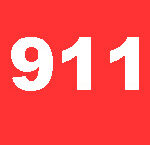
EMERGENCY RESPONSE
- Does everyone in the household know how and when to call 911?
Dial 911 in an emergency that requires immediate assistance from Lyme Ambulance, Lyme Fire Co., or the police. Children as young as four should learn how to dial 911 in an emergency. Click here to learn more about calling 911 in a medical emergency.
- Is your house number clearly visible from the road?
Emergency services need to be able to find your house quickly when you call. Make sure the house numbers are at least 3″ high, easy to see in the dark, and readable from either direction on the road.
- Do you have a FILE OF LIFE kit?
The FILE OF LIFE stores vital information needed in a medical emergency. Fill out a card for each family member; place the cards in the magnetized holder provided, and affix the holder to your refrigerator or other highly visible location. Emergency services know to look for the FILE OF LIFE. You can get a kit free from Lyme Ambulance by calling 860-434-7225.
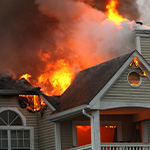
FIRE PREPAREDNESS
- Is there at least one smoke detector on each level of your home, including the basement?
There should be a smoke detector in each bedroom, in the hall outside the bedroom(s), and in or near the kitchen.
- When were the smoke detector batteries last replaced?
Recommended: Replace alkaline batteries every 6 months or use 10-year lithium batteries. Even if your smoke alarms are hard-wired, they still need batteries in case of a power outage. Always replace the batteries right away if the detector is ‘chirping.’
- How often do you test your smoke detectors?
Recommended: Push the test button and vacuum the smoke alarm grilles once a month.
- Is there a fire extinguisher on each level of your home and in the garage?
Be sure to keep one in the kitchen: That’s where most house fires start.
- Do all adults and responsible teens know how and when to use a fire extinguisher?
To use an extinguisher: 1) PULL the pin, 2) AIM at the bottom of the fire, 3) SQUEEZE the trigger, SWEEP across the base of the fire. You should only use an extinguisher on a small fire, such as in a wastebasket, and make sure everyone else is out of the house, and 911 has been called. If the fire grows or smoke starts to fill the room, leave immediately! Do not risk your safety. Any doubt? GET OUT!
- When was the charge level on your fire extinguishers last checked?
The gauge should be in the green zone. Non-refillable extinguishers should be replaced after 10 years.
- Do you have a fire escape plan for your household?
Devise several different escape routes in case the main exit is blocked by fire.
- When was the fire escape plan last practiced?
Recommended: Practice twice a year with the entire family. Practice feeling your way out of the house with the lights off or your eyes closed.
- If you live in a 2-story house, do you have a drop-down fire escape ladder?
Recommended: Keep a ladder near a window in each upstairs bedroom, and make sure the designated window(s) can be opened easily.
- Do you keep your phone in the bedroom when you’re sleeping?
You always want to be able to call 911 quickly in an emergency. Keep a powerful flashlight handy in your bedroom too.
- Do you know what to do in a house fire?
1) Alert everybody to get out and DIAL 911 immediately
2) Close the door to the room the fire’s in to slow the spread
3) Once everyone is out, STAY OUT!
- Do you know what to do if the fire has already spread while you’re inside?
Drop down to the floor and crawl to avoid the worst of the heat and smoke. Feel any doorknob before opening. If it’s hot, do NOT open. Find another way out. If you’re trapped in a room, cover vents and cracks around the closed door with cloth or tape to keep the smoke out. Call 911 again and let them know where you’re located in the house. If your clothes catch on fire, Stop, Drop, and Roll: Immediately stop and drop to the ground, cover your face with your hands, and roll back and forth until the fire is out.
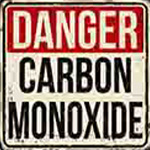
HEATING SAFETY
- Do you have at least one carbon monoxide (CO) detector on every floor of your home?
Monitoring is especially important if you heat or cook with gas or have an attached garage.
- Is there a carbon monoxide detector within 10 feet of each bedroom?
If you have an attached garage, position a detector near or over the garage too.
- Are outside vents for gas appliances unobstructed?
Remember to keep vents clear during and after a snowstorm too.
- Do you ‘warm up’ your car in an attached garage or use a gas or kerosene space heater indoors?
PLEASE DON’T! It doesn’t take much for poisonous carbon monoxide to reach dangerous levels.
- Do you burn only dry, seasoned wood in the fireplace or wood stove to minimize creosote buildup?
Creosote is a health hazard and chimney fire risk.
- When was your flue/chimney last professionally cleaned?
Recommended: Annual professional cleaning.
- Is your fire screen in good repair and sturdy enough to stop a rolling log?
Even with a fire screen in place, always keep flammables at least 3 feet away from the fire.
- Do you use an electric space heater?
Use it only on a flat, level surface, and keep flammables at least 3 feet away. Avoid leaving an operating space heater unattended. Choose a space heater with overheat protection and an auto shut-off that turns the heater off if it tips over. Do not use an extension cord with a space heater.
- Is your water heater temperature set at/below 120 degrees?
Children and the elderly are the most vulnerable to scalding.
- Do you regularly clean the lint filter in your dryer?
Clean the filter every time you use the dryer, and clean the dryer duct at least once a year. Lint buildup is a significant fire risk.
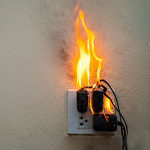
ELECTRICAL SAFETY
- Do all your electrical outlets have grounded safety breakers?
Grounded outlets reduce the risk of electric shock and help stop ‘arc’-ing that could cause a fire.
- Do you have ground-fault circuit interrupters (GFCIs) on outlets in bathroom, kitchen, laundry room?
GFCIs shut off the circuit when there is a shock hazard, like from wet hands.
- Are any electrical wires in the house or garage worn or frayed?
Replace as soon as possible. Wrapping with electrical tape is not a permanent solution.
- Do any switches, outlets, or plugs feel warm, look discolored, or smell funny?
Unplug and don’t use again until an electrician has checked it. Call an electrician if you have a light fixture that flickers or dims. It could be a sign of overloaded circuits.
- Do you check to make sure you’re using the right wattage when replacing a light bulb?
Always replace with a bulb that matches the lamp manufacturer’s wattage (shown on the socket), unless you’re replacing an incandescent bulb with a LED bulb.
- Have you had an extension cord in place for years?
Consider adding a new outlet instead. Extension cords are intended for short-term use. Do not plug one extension cord into another, and don’t use an indoor extension cord outdoors. Never use an extension cord for a major appliance.
- Do you plug more than one high-wattage or heat-producing appliance into a single outlet?
That can cause overheating and damage the wiring, which could ignite a fire.
- Is your gas or electric dryer at least 1 foot away from any wall?
Without enough air circulation, a clothes dryer can overheat, short out, and could cause a fire.
- Are your circuit breakers labeled so you can selectively cut power when doing home repairs?
You should also know how to turn off all utilities (power, gas, water) at the source.
- Is your home more than 40 years old?
Consider having your electrical system inspected by a qualified professional.
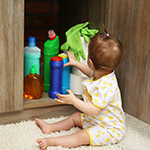
DRUG/POISON SAFETY
- Are all toxic or caustic chemicals out of reach of young children and pets?
Check in the cellar, garage, and any outbuildings too.
- Are all medical, herbal, over-the-counter, and any recreational drugs secure from curious children?
Use safety caps or store them in a locked cabinet.
- Are you careful to keep coin-sized (‘button’) batteries out of reach of young children?
Check action toys, too: Make sure the coin-sized batteries are secure and can’t be pried out and swallowed. The chemical reaction from ingested batteries can cause devastating internal injury.
- Did you know antifreeze tastes sweet but is very poisonous to humans and pets?
Call 911 immediately if your child has ingested any amount of antifreeze, even if the child seems fine at first. Always store antifreeze and other toxic substances in their original container.
- Do you know the phone number for the Poison Control center?
It’s 1-800-222-1222. They can tell you if a substance is poisonous and what you should do. There’s also a poison hotline for pets. The number is 1-888-426-4435.
- Do you keep expired or unneeded prescription drugs?
Take them to the pharmacy for safe disposal.
- Do you have trouble remembering if you took your medication?
Use a pill organizer. Get one with an audible alarm to remind you.
- Do you consult with your doctor before giving your child or teen aspirin?
Children/teens with chickenpox or flu-like symptoms should never be given aspirin because of the link to Reye’s Syndrome, a rare but serious medical condition.
- Did you know that you should never mix a cleaning product containing bleach with one containing ammonia?
It creates chloramine gas, which can be deadly. If you accidentally use them together, move to fresh air as soon as possible, and dial 911 if you have difficulty breathing. Other products you shouldn’t mix with bleach include: vinegar, rubbing alcohol, toilet bowl cleaner, mold or mildew cleaner, and oven cleaner.
- When was the last time you had your well water professionally tested?
Recommended: Test for arsenic, VOCs, coliform, and nitrates at least every five years.
- Have you ever had your water tested for lead?
Lead can leach from old (pre-1930) plumbing or from lead-based solder (pre-1988). Young children are the most susceptible to the harmful effects of lead.
- Was your house built before 1978?
There may be lead-based paint on the walls. Have the paint removed by a qualified professional who will take the precautions necessary to contain the contaminated dust when sanding.
- Have you ever tested your home for radon?
Radon is a naturally occurring radioactive gas found in CT (including Lyme) that is the 2nd leading cause of lung cancer. Get a free radon testing kit from the Ledge Light Health District: (860) 448-4882.
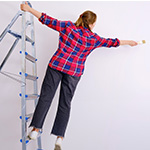
ACCIDENT SAFETY
- Do you check the ladder for loose or worn parts before using it?
Keep the ladder level and stable for safety, and don’t overreach.
- Do you wear protective foot & eyewear when mowing the lawn?
There are more than 35,000 mower accidents a year.
- Do you tell bystanders to keep back when using a power mower or blower?
Small pebbles or twigs can become dangerous projectiles.
- Do you wait for the mower engine to cool before adding gas?
Even a small spill could ignite a fire.
- Do you wear protective eyewear when using power tools?
Flying splinters can imbed in the eye.
- Are all power tools locked away or out of the reach of curious children?
Always store power tools with the guards on. Keep children away when using the power tool.
- Do you always check your chainsaw before using it?
Check the chain tension, and only use a sharp chain. Make sure the oil tank is full. Wear a helmet with a faceguard, hearing protection, chainsaw gloves and chainsaw chaps, and protective shoes. Minimize kickback by never sawing with the tip of the saw. Keep the tip guard in place.
- Do you burn candles?
Never leave a burning candle unattended. Consider using flameless candles instead.
- Do you stay in the kitchen while food cooks on the stovetop?
Always “keep an eye on what you fry,” and make sure potholders and towels are well away from the flame and pot handles are turned so they won’t catch on your sleeve. Avoid wearing loose-fitting clothing that might drape into the burner when cooking. It’s always best to turn off all burners if you leave the kitchen, even for a few minutes, in case there’s a phone call or other distraction that keeps you away longer than planned.
- Do you know what to do for a small grease fire when cooking?
Immediately slide a lid over the pan, turn off the burner, and don’t remove the lid until the pan is cool. If there’s a fire in the oven, turn off the oven and keep the door shut. If you have any concerns, remember the rule: When in doubt, get out… and call 911.
- Is your barbecue grill at least 10 feet away from the house?
Keep the grill 10 feet away from siding and deck railings and out from under eaves and overhanging branches.
- Do you mop up spills immediately after they happen?
Wet or sticky floors are a serious fall hazard.
- Are your stairways well-lit, free of clutter, and equipped with handrails?
Check for loose treads and worn steps too. Ditto uneven walkways outdoors. For more tips, see Fall Prevention.
- Do all your throw rugs have non-slip backing?
If not, use a non-slip mat, tack them down, or get rid of them. Throw rugs are a tripping hazard. Never use a throw rug at the top of the stairs.
- Are all electrical wires and extension cords out of the way where you walk?
Piles of magazines/newspapers or scattered toys on the floor are tripping hazards too.
- Do you have a good non-slip mat or sturdy decals in the bathtub or shower?
Consider adding safety bars too, and a non-slip mat in front of the sink. The bathroom is the riskiest place in the house for falls.
- Do you have a swimming pool?
Be sure the fence around it is in good repair and the gate latches securely.
- Do you have any guns in the house?
Keep them unloaded and locked up when not in use; store ammunition in a separate locked box. Use trigger guards. Wear hearing protection when firing.
- Do you have a first-aid kit at home?
Keep a well-stocked first aid kit, and consider getting a STOP-the-Bleed kit too. Call Lyme Ambulance at (860) 434-7225 for recommendations.
 Lyme Ambulance Association, Inc.
Lyme Ambulance Association, Inc.